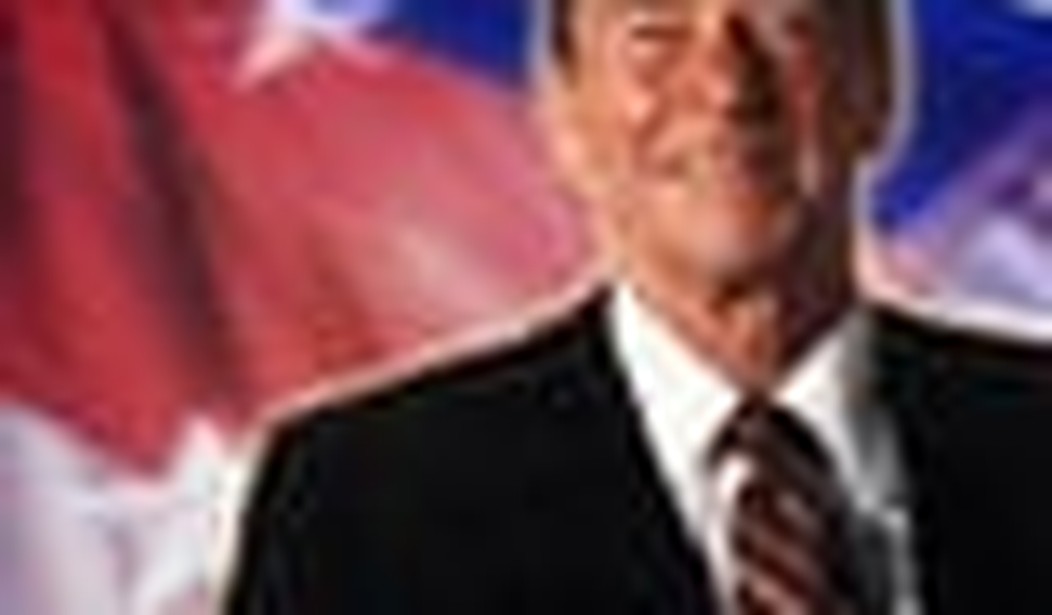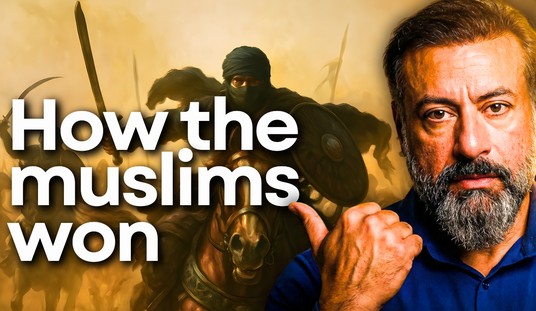Few presidents have altered the trajectory of world affairs as dramatically as Ronald Reagan, whose Centennial America we celebrate on Feb. 6.
The year-long Centennial celebration is an opportunity to examine the legacy and lessons of our 40th president, who not only reversed the “malaise” mentality at home and revived American optimism, but also stared down totalitarians abroad and won the Cold War.
President Reagan longed to see the slaves of communism freed, and knew the best way to free them was simple: “We win, they lose.” It was this blunt approach to the Cold War which more than ruffled the foreign-policy establishment’s feathers. And Reagan set the tone for his Cold War policy early on, angering nearly everyone but those enslaved behind the Iron Curtain when he called the Soviet Union the “evil empire.”
He ruffled feathers again when he walked out of the October 1986 Reykjavik summit, refusing to bend on his Strategic Defense Initiative (SDI) to stave off nuclear armageddon. And of course – in perhaps the most famous utterance of an American president in modern times – he told Mikhail Gorbachev to “tear down this wall.”
President Reagan understood the importance of making sure our agitators knew what America was capable of. Just as powerful as military action was the perception of what military action could accomplish. He focused on rebuilding the military, challenging and defending against the Soviet nuclear threat, and refusing to compromise American interests at the negotiating table.
All of President Reagan’s actions were founded on the fundamental philosophy that freedom is a powerful and effective tool for change. Each piece of his policy agenda was dependent on the idea that freedom was the answer to the problems facing the United States and the rest of the world.
It’s impossible to separate President Reagan’s foreign policy from his economic principles and his vision of American society. Utilizing his mastery of rhetoric and communication, he instilled in the American psyche a belief that the Cold War was winnable because, after all, the American people could accomplish anything. In turn, the economic recovery provided the resources needed to out-build and stare down the Soviet military.
There will always be detractors to Reagan’s legacy who attack his dedication to freedom as a rhetorical device, or overly simplistic. What those who had the honor of knowing and working with President Reagan know is that his love of freedom was genuine, and far from simple. It informed every decision he made, as Lady Margaret Thatcher noted in her eulogy to Reagan in 2004.
“Others prophesied the decline of the West; he inspired America and its allies with renewed faith in their mission of freedom,” she said. “We live today in a world that Ronald Reagan began to reshape with those words.”
As important as it is to revisit and analyze the events and accomplishments that define President Reagan’s legacy during the Centennial, President Reagan himself always believed America’s and the world’s best days were ahead, and he understood what it would take to keep moving forward. He based his foreign policy on a grand vision for America. As he said in his 1984 State of the Union address, “America is too great for small dreams.”
Although both the Berlin Wall and the Soviet empire fell just after President Reagan left office, these are the enduring triumphs of his legacy. Some argue that Communism was already on the wane. Perhaps. But for President Reagan, who didn’t have the benefit of hindsight, waiting on the inevitable when millions were denied freedom was simply unacceptable.
For him, the time for appeasement was over; the time for American greatness had returned: “With faith and courage, we can perform great deeds and take freedom’s next step,” he said. “And we will. We will carry on the tradition of a good and worthy people who have brought light where there was darkness, warmth where there was cold, medicine where there was disease, food where there was hunger, and peace where there was only bloodshed.”









Join the conversation as a VIP Member